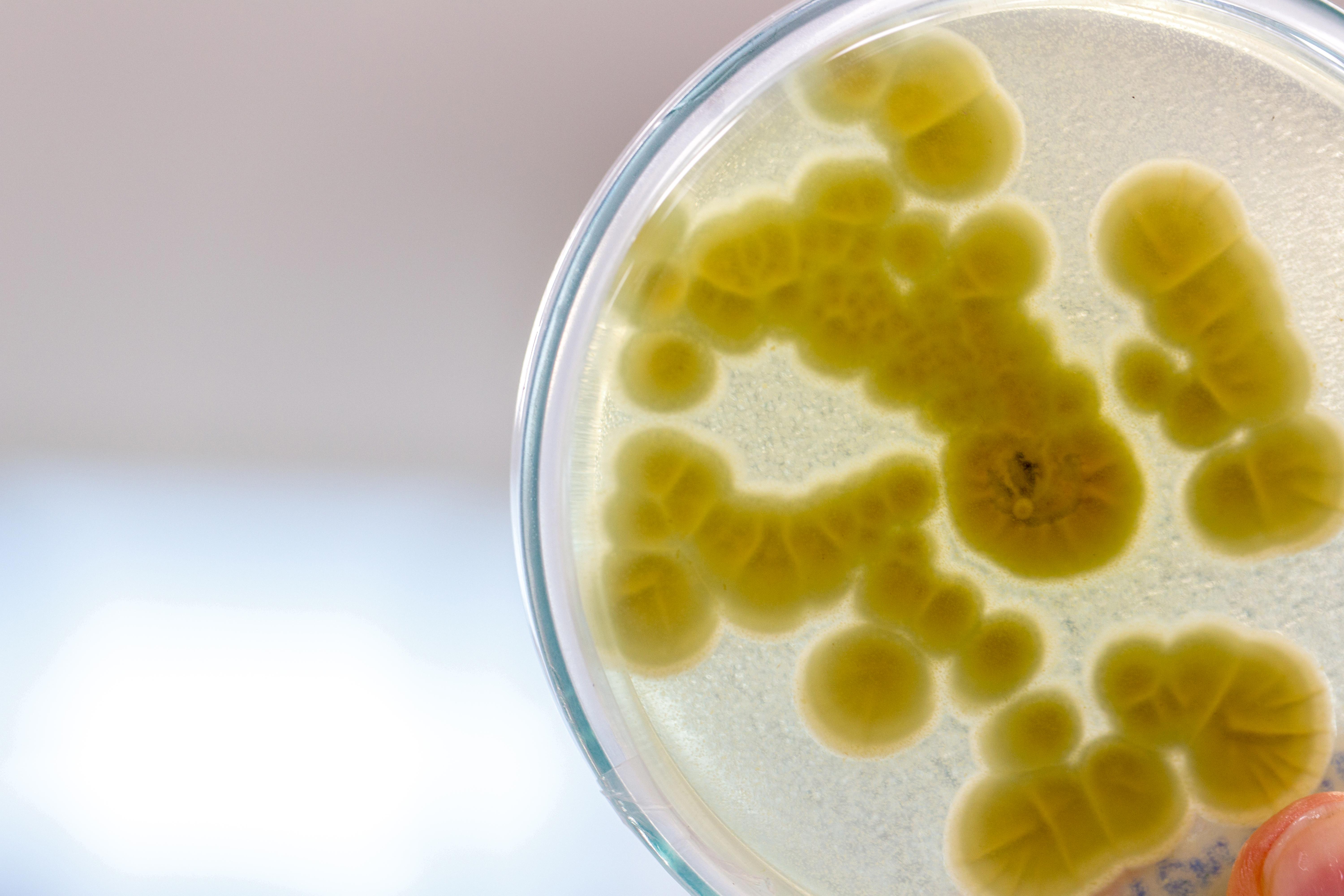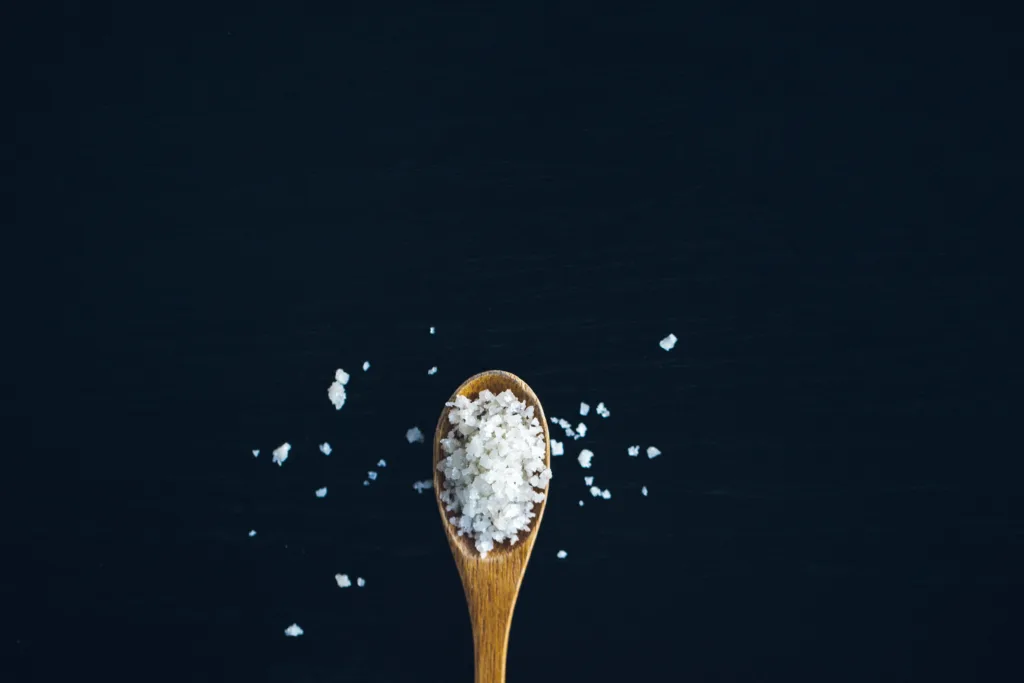Salt is a common household item that has been used for centuries for various purposes. One of its most notable uses is in cooking, whee it is used to enhance the flavor of food. However, many people are unaware that salt also has antibacterial properties. In this blog post, we will explore the question, does salt kill bacteria?
Firstly, it is important to understand the science behind how salt works as an antibacterial agent. When salt is dissolved in water, it creates a saline solution. This solution has a higher concentration of salt than the cells of most bacteria, which causes water to be drawn out of the bacterial cells. This process is known as osmosis, and it can cause the bacteria to become dehydrated and die.
Research has shown that the effectiveness of salt as an antibacterial agent depends on the concentration of salt in the solution and the length of time the bacteria are exposed to it. A study published in the Journal of Food Science found that a concentration of 20% salt solution could kill most bacteria within two hours. However, a lower concentration of 10% salt solution took significantly longer to kill the bacteria.
It is important to note that not all bacteria are susceptible to salt. Some bacteria, such as Listeria monocytogenes, are able to survive in high salt concentrations. Additionally, some strains of bacteria, such as Staphylococcus aureus, have developed resistance to salt over time.
Salt can also be used to cleanse wounds and prevent infection. The antibacterial properties of salt can help to kill bacteria in the wound and prevent the growth of new bacteria. A study published in the International Wound Journal found that salt water was just as effective as traditional wound cleansing agents in preventing infection.
Salt does have antibacterial properties and can be used to kill bacteria and prevent infection. However, its effectiveness depends on the concentration of salt and the length of time the bacteria are exposed to it. It is important to note that not all bacteria are susceptible to salt, and some strains may have developed resistance over time. Nevertheless, salt remains a useful and cost-effective antibacterial agent that can be utilized for various purposes.
The Effectiveness of Salt in Killing Infections
Salt has been used as a natural remedy for centuries due to its antibacterial and antimicrobial properties. While salt does not directly kill infections, it can help to prevent and reduce the growth of bacteria and viruses. When salt is applied to a wound, it draws out moisture and creates a dry environment that is less favorable for bacterial growth. This can help to prevent infections from developing or spreading. Additionally, salt can be used as a gargle or nasal rinse to help soothe sore throats and clear congestion, which can help to reduce the symptoms of respiratory infections. However, it is important to note that salt sould not be relied upon as the sole method of treating infections, and medical attention should be sought if symptoms persist or worsen.

Source: sciencing.com
The Effectiveness of Salt in Killing Bacteria
Salt can effectively kill bacteria, and the time it takes for this to happen depends on the amount of salt used and the contact time between the salt and the bacteria. Studies have shown that adding 50 grams of sodium chloride (NaCl) per liter of water can kill almost all bacteria in just two days. However, if the concentration of salt is increased to 100 grams per liter, the bacteria can be killed in as litle as 30 minutes.
It’s worth noting that the effectiveness of salt as a bacterial killer is also influenced by other factors, such as temperature, pH, and the type of bacteria present. Nevertheless, the concentration and contact time of salt are two crucial factors in determining how long it takes for salt to kill bacteria. salt can be a useful tool for disinfecting surfaces, preserving food, and treating certain bacterial infections.
The Effect of Salt on Bacteria
Salt is an effective natural remedy for killing bacteria. However, it is important to note that the amount of salt needed to kill bacteria may vary depending on the type of bacteria and the concentration of salt used. Generally, a concentration of at leat 3% salt is required to kill most bacteria. This means that for every 100 milliliters of water, 3 grams of salt should be added. It is important to use the correct amount of salt as too little may not be effective and too much can cause irritation to the mouth and throat. It is also important to note that salt is not a substitute for good oral hygiene practices and should be used in conjunction with regular brushing and flossing to maintain good oral health.
The Effectiveness of Salt as a Natural Antibiotic
While salt does have some antimicrobial properties, it is not considered a true antibiotic. Antibiotics are substances that are specifically designed to kill or inhibit the growth of bacteria, fungi, or other microorganisms. Salt, on the other hand, is a natural mineral that can help to prevent the growth of certain types of bacteria, including those that cause infections in wounds. When used as a wound cleanser, salt can help to draw out moisture and bacteria from the affected area, which can help to promote healing and prevent futher infection. However, it is important to note that salt should not be used as a substitute for medical treatment, and any serious wound or infection should be evaluated by a healthcare professional.

Conclusion
While salt does not actively kill viruses or bacteria, it plays a significant role in altering the water and pressure of the cells within the mucus of the respiratory system. The salty air draws water out of the viral and bacterial cells, causing them to die. Moreover, salt has been used for thousands of years as a natural antiseptic and anti-inflammatory agent in wound cleansing. It creates an alkaline environment that most oral bacteria cannot survive in. However, the toxicity of salt depends on contact time, and a higher concentration of salt in water may be required for thorough bacteria eradication. Therefore, while salt can help reduce bacterial growth, it sould not be relied upon as the sole method of bacterial control. Other hygiene practices, such as washing hands regularly and avoiding close contact with those who are sick, are also essential in preventing the spread of bacteria and viruses.
